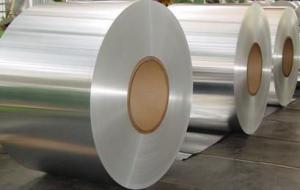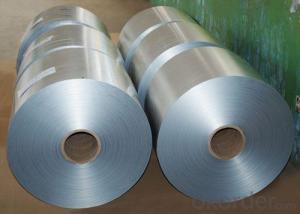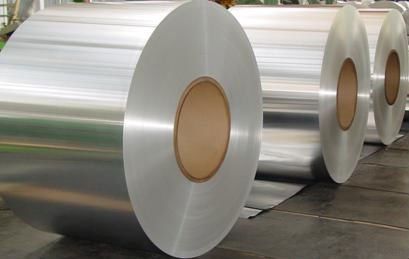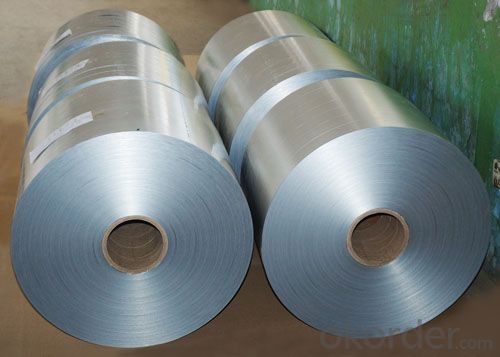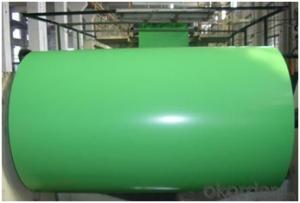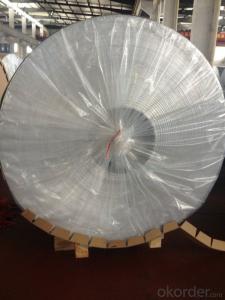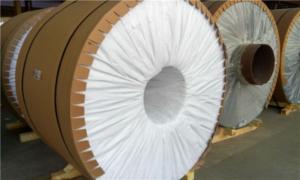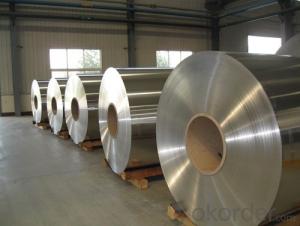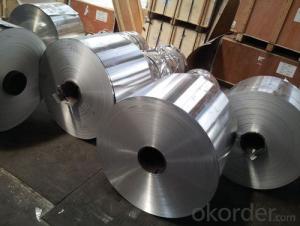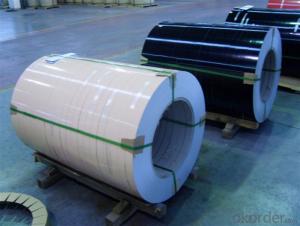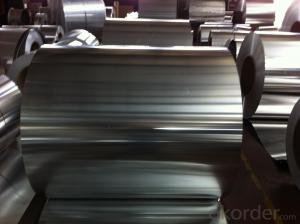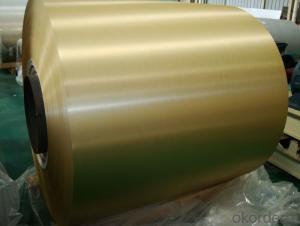Aluminum Coil 1100 5754 Mirror Cost Insulation Aluminum Roll
- Loading Port:
- Shanghai
- Payment Terms:
- TT OR LC
- Min Order Qty:
- 5 m.t.
- Supply Capability:
- 6000 m.t./month
OKorder Service Pledge
OKorder Financial Service
You Might Also Like
Specification
1100 5754 Mirror Cost Insulation Aluminum Roll
Applications:
Aluminum foil roll is widely used in construction,decoration,hardware,
electric appliances,machinery and other industrial and civil purposes,
such as electronic capacitor,composite cooker,rice cooker,refrigerator,
computer casting,telecommunication,equipment,lamp shade,air conditioner,
cosmetics cover and so on.
Or it can be made as customers’ requirement.
Specifications
color aluminum coil
1000 series 1100 10160 1200
surface could be: Brushed, drawing, embossed, printing
color: red,
color aluminum coil
.Alloy type: 1050/1060/1100/1350
2.Temper: H16, H18, H22, H24
3.Thickness range: 0.1mm-4mm
4.Width range: 25mm-1600mm
5.Surface:finish: bright & smooth surface, without flow lines, slight oiled to avoid white rusting.
6.Quality material:totally free from such defefects as roll marks, edge damager, camber, white rust, oil patches, holes, break lines,
color aluminum coil
Name |
color aluminum coil |
Alloy or not | yes |
Alloy | 1100H16/18, 3003H24,3003H26,3005H26,8011,3004,3105,5005,etc. |
Thickness | 0.1-4mm |
Width | ≤1600mm |
MOQ | 5T |
Coating finish | Brushed, drawing, embossed, printing |
Color | As to code RAL |
Surface | Embossed,Mill Finish,Coated,Brushed |
Gloss | 10-90%(EN ISO-2813:1994) |
Total coating thick | PVDF27 ~35micron |
Polyester18~27micron(EN ISO-2360:1995) | |
Coating hardness | 2H |
Adhesion | 5B (EN ISO-2409:1994) |
Impact resistance | No cracking and peeling (A.S.T.M D2794-1993) |
Flexibility (T-bend) | 0T- 2T |
MEK resistance | 100 |
Certification | ISO9001:2000, CE, SGS |
Coil's standard diameter | 1100mm |
Inner Diameter | 405mm/505mm |
Coil's standard weight | 2000kgs |
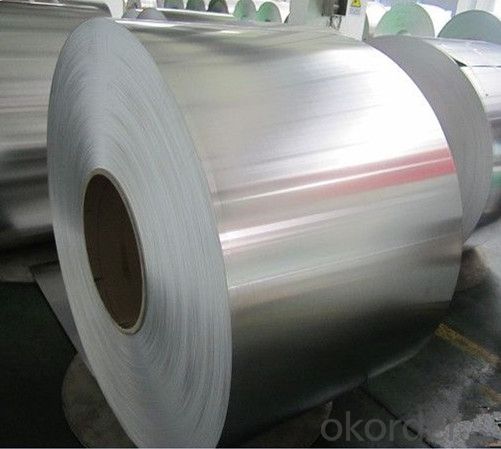
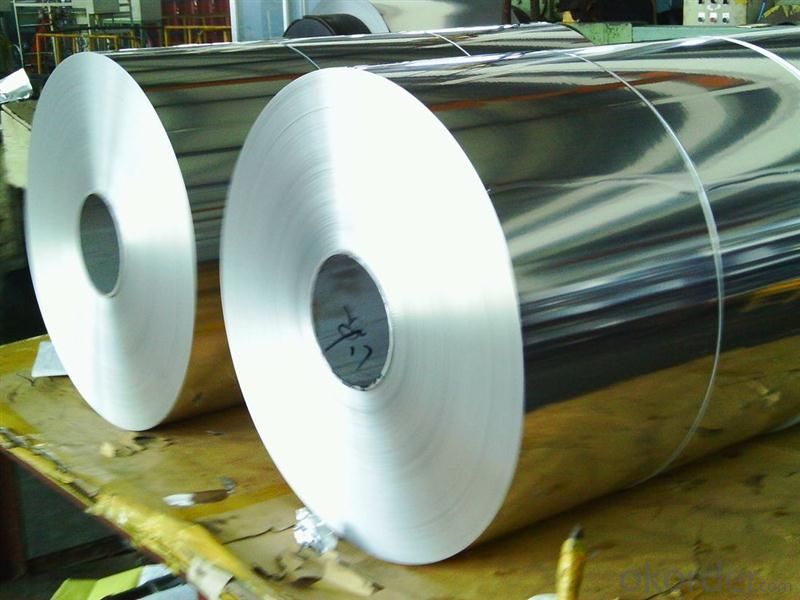
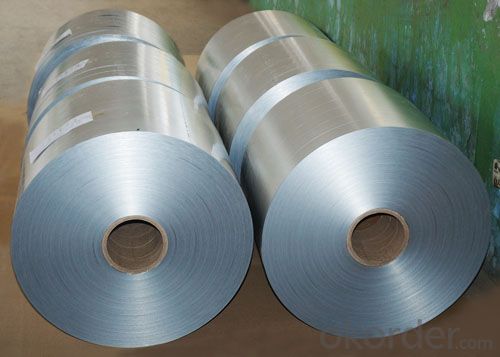
- Q: hello, i have been recently studying the production of aluminum from aluminum dross (recycling of aluminum) .this chemical equations represents the hydrolization of sodium aluminate to obtain aluminum hydroxide :Na2Al2O4 + 4H2O -----------gt; 2Al(OH)3 + 2NaOHafter that the next step is to produce Al2O3the next step to obtain Aluminum is to pass a current through the solution (electrolysis)this is the part that i don't get .... how could we electrolyze Aluminium oxide to produce aluminum if we are recycling aluminum ... i mean electrolysis consumes most of the energy and is very expensive .... so how do electrolysis be used in the recycling industry...please answer ... all answers are really appreciated ....and correct me if my informations are wrong...
- OMG Zilla...you're a TC!!! i might somewhat not think of roughly God or the rest seeing via aluminum foil. It makes me experience bare. I positioned on it each and every of the time. undergo thinks that's attractive. :)
- Q: What are the common cutting and shaping methods for aluminum coils?
- There are several common cutting and shaping methods for aluminum coils, depending on the desired outcome and application. One of the most common methods is shearing, which involves cutting the aluminum coil with a sharp blade. Shearing is ideal for straight cuts and is often used for applications that require precise dimensions, such as manufacturing automotive parts or construction materials. Another method is slitting, which involves cutting the aluminum coil into narrower strips. Slitting is commonly used in industries such as packaging, where thin strips of aluminum are needed to create products like food packaging or aluminum foil. For more complex shapes, such as curves or bends, a method called press brake forming is often used. In this process, the aluminum coil is placed in a press brake machine and bent into the desired shape using a punch and die. Press brake forming is commonly used in industries like aerospace or architectural design, where intricate shapes are required. Additionally, laser cutting is a popular method for cutting aluminum coils. Laser cutting uses a high-powered laser beam to cut through the aluminum, allowing for precise and intricate cuts. This method is often used in industries like signage or electronics, where detailed designs are necessary. Overall, the common cutting and shaping methods for aluminum coils include shearing, slitting, press brake forming, and laser cutting. These methods offer various options for manufacturers to shape aluminum coils according to their specific needs and requirements.
- Q: What is the price range of aluminum coils?
- The price range of aluminum coils can vary depending on various factors such as the thickness, width, alloy type, and market conditions. Generally, the price range for aluminum coils can start from as low as $1 per pound for thinner gauge coils, and can go up to $3 per pound or higher for thicker gauge coils or specialized alloys. It's important to note that these prices are approximate and can fluctuate based on market demand, availability, and other economic factors. It is recommended to contact suppliers or consult market research reports for accurate and up-to-date pricing information.
- Q: Can aluminum coil 3003H24 replace 3A21H14?
- Yes.
- Q: What are the legal frameworks or regulations that control the manufacturing and distribution of aluminum coil?
- <p>Yes, there are regulations and laws governing the production and sale of aluminum coil. These often include environmental protection laws that regulate emissions and waste disposal, safety standards for manufacturing processes, and quality control regulations to ensure the product meets certain specifications. Additionally, trade laws and tariffs may affect the sale of aluminum coil, especially when it crosses international borders. Compliance with these regulations is crucial to avoid penalties and maintain a competitive edge in the market.</p>
- Q: Can aluminum coils be used in high-vibration environments?
- Indeed, high-vibration environments can accommodate the utilization of aluminum coils. Renowned for its remarkable strength-to-weight ratio, aluminum possesses the capacity to endure vibrations without undergoing substantial deformation or fracture. Moreover, its outstanding corrosion resistance characteristics render it suitable for diverse environmental circumstances. Consequently, it is frequently employed in sectors like automotive, aerospace, and electronics, where high-vibration environments prevail. Nevertheless, it is imperative to guarantee the appropriate design and installation of aluminum coils to mitigate any potential complications arising from vibration.
- Q: This question asks for the weight of a single layer of an aluminum coil, which can vary based on its dimensions.
- <p>The weight of a single layer of an aluminum coil depends on its thickness, width, and length. To calculate the weight, you can use the formula: weight = volume 脳 density. The density of aluminum is approximately 2.7 grams per cubic centimeter. If you know the dimensions of the coil, you can calculate its volume and then multiply by the density to find the weight. For example, if the coil has a thickness of 0.1 mm, a width of 1 meter, and a length of 100 meters, the volume would be 0.1 liters or 100 cubic centimeters, and the weight would be approximately 270 kg. However, without specific dimensions, it's impossible to provide an exact weight.</p>
- Q: show step by step
- First write out the formula reaction: 4Al + 3O2 --- 2Al2O3 Next, find the number of moles of oxygen gas needed to oxidize 3.42 g of aluminium completely. From the cchemical equation above, 3 mol of oxygen is used to oxidize completely 4 mol of aluminium. Calculate the no. of moles of aluminium used: no. of moles of aluminium used = 3.42 g / molar mass of Al = 3.42 g / 26.98 g mol^-1 = 0.127 mol Use the mole ratio concept to find the no. of moles of oxygen required: no. of moles of oxygen required : no. of moles of aluminium used = 3 : 4 no. of moles of oxygen required / 0.127 = 3 / 4 no. of moles of oxygen required = (3 / 4)(0.127) = 0.095 mol Next, use the gas equation PV = nRT [P: Pressure of gas in Pa; V: Volume of gas in m^3; n: no. of moles; R, gas constant, 8.314 J mol^-1 K^-1; T, Temperature of gas in K] -Convert 0.975 atm to Pa: 0.975 atm = (0.975 x 101325) Pa = 98791.875 Pa -Convert 25 oC to K: 25 oC = (25 + 273) K = 298 K -Substitute into the equation PV = nRT and solve it: (98791.875)(V) = (0.095)(8.31)(298) (98791.875)(V) = 235.2561 V = 235.2561 / 98791.875 = 0.002381 m^3 = (0.002381 x 10^3) L = 2.381 L
- Q: Domestic production of color coated aluminum coil manufacturers which good?
- Color coated aluminum coil has two kinds of polyester color coating and fluorocarbon coating.
- Q: What are the typical production volumes for aluminum coil manufacturers?
- The typical production volumes for aluminum coil manufacturers vary depending on the size and capabilities of the specific manufacturer. However, it is common for aluminum coil manufacturers to produce thousands to tens of thousands of tons of aluminum coils annually, catering to the demands of diverse industries such as construction, automotive, and packaging.
Send your message to us
Aluminum Coil 1100 5754 Mirror Cost Insulation Aluminum Roll
- Loading Port:
- Shanghai
- Payment Terms:
- TT OR LC
- Min Order Qty:
- 5 m.t.
- Supply Capability:
- 6000 m.t./month
OKorder Service Pledge
OKorder Financial Service
Similar products
Hot products
Hot Searches
Related keywords
